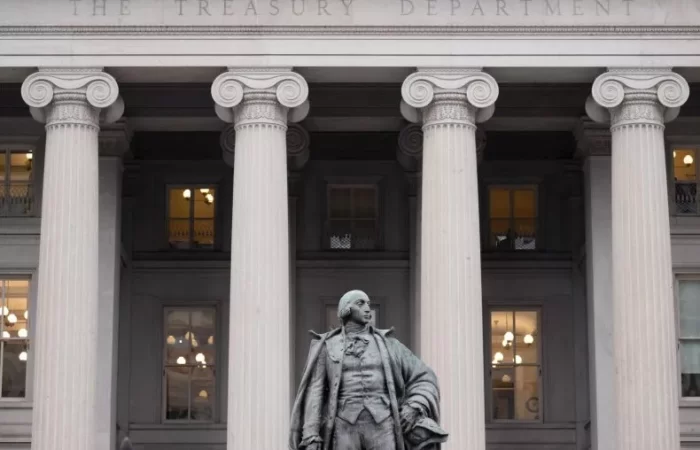
Cannabis Chart Of The Week: Rule 280e – Taxation Without Representation?
In honor of Independence Day, the Viridian Capital Chart of the Week explores the impact of IRS Rule 280e, the most egregious tax leveled on any American industry, posing an existential threat to even some of the largest MSOs.
We collected consensus estimates of 2023 cash flow from operations and CAPEX for 13 large U.S. MSOs to calculate free cash flow (FCF) after the impact of paying 280e taxes but before any debt maturities (shown in the blue bars.) The graph is arranged in increasing order of 2023 consensus FCF. Six of the thirteen companies have expected negative 2023 free cash flow.
Eliminating 280e would make a remarkable difference in the companies’ free cash flow on the graph. Three companies with negative FCF would have positive FCF without 280e, and the adjustment would more than double FCF for the five companies on the right side of the graph. The adjustment would add approximately $700M to the 2023 FCF of the companies on the chart.
The elimination of 280e would dwarf the impact of either the SAFE Act or potential TSX up-listing, while its continuation threatens to starve the industry of the cash flow needed to survive, let alone grow.
The pathway to the elimination of 280e is not simple. Complete descheduling is highly unlikely in the near term and could potentially result in industry chaos if steps are not taken to give some protection to the limited license state setups. Rescheduling to level 3 or below has its own issues, including introducing FDA oversight on a limited set of products and continuing state control over others. It will likely take years to draft and approve the necessary regulations and achieve coordination among the federal agencies involved.
Perhaps the most straightforward way to eliminate 280e would be for Congress to pass legislation that would directly modify the Internal Revenue Code to eliminate 280e. It is unknown whether sufficient political will exists to get this done. Cannabis continues to be an issue that does not drive votes. No legislator feels that his action or inaction regarding cannabis threatens his re-election. Unlike in 1776, there is currently no rallying cry to eliminate “taxation without representation.”
The Viridian Capital Chart of the Week highlights key investment, valuation and M&A trends taken from the Viridian Cannabis Deal Tracker.
The Viridian Cannabis Deal Tracker provides the market intelligence that cannabis companies, investors, and acquirers utilize to make informed decisions regarding capital allocation and M&A strategy. The Deal Tracker is a proprietary information service that monitors capital raise and M&A activity in the legal cannabis, CBD, and psychedelics industries. Each week the Tracker aggregates and analyzes all closed deals and segments each according to key metrics:
Deals by Industry Sector (To track the flow of capital and M&A Deals by one of 12 Sectors – from Cultivation to Brands to Software)
Deal Structure (Equity/Debt for Capital Raises, Cash/Stock/Earnout for M&A) Status of the company announcing the transaction (Public vs. Private)
Principals to the Transaction (Issuer/Investor/Lender/Acquirer) Key deal terms (Pricing and Valuation)
Key Deal Terms (Deal Size, Valuation, Pricing, Warrants, Cost of Capital)
Deals by Location of Issuer/Buyer/Seller (To Track the Flow of Capital and M&A Deals by State and Country)
Credit Ratings (Leverage and Liquidity Ratios)
Since its inception in 2015, the Viridian Cannabis Deal Tracker has tracked and analyzed more than 2,500 capital raises and 1,000 M&A transactions totaling over $50 billion in aggregate value.
The preceding article is from one of our external contributors. It does not represent the opinion of Benzinga and has not been edited.
© 2023 Benzinga.com. Benzinga does not provide investment advice. All rights reserved.











